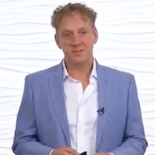The Power of Self-Efficacy Translated: Ready for Clinical Practice
Presented by Rob Winningham and Mike Studer
12-Month Subscription
Unlimited access to:
- Thousands of CE Courses
- Patient Education
- Home Exercise Program
- And more
This course series will help practitioners maximize therapeutic outcomes by improving patient motivation and engagement. Attendees will learn how to motivate patients who don’t seem willing to do the work necessary to benefit from therapy or improve their quality of life. Much of the course will focus on identifying low self-efficacy and ways to increase it. Many different intervention ideas will be shared so professionals can customize their approach based on unique patient characteristics. Increased self-efficacy has been shown to improve patients’ engagement, outcome attainment, and quality of life.
Learning Objectives
- Analyze factors that influence patient motivation
- Distinguish between general self-efficacy and domain-specific self-efficacy
- Determine correlates of self-efficacy
- Deduce low self-efficacy in patients
Meet your instructors

Rob Winningham
Dr. Rob Winningham has 25 years of experience researching human memory and has largely focused on older adults and ways to enhance their mental functioning and quality of life. He creates brain stimulation activities for more than 10,000 retirement communities and rehabilitation facilities as a part of Dr. Rob’s Cranium…

Mike Studer
Dr. Mike Studer has been a PT since 1991. He has been board certified in neurologic PT since 1995 and has been a private practice owner since 2005. Dr. Studer has been an invited speaker covering 50 states, 10 countries, and 4 continents, speaking on topics such as cognition and psychology in rehabilitation, aging, stroke,…
Chapters & learning objectives

1. Motivating Patients to Fully Benefit From Therapy
In this chapter, we will discuss how to generally maximize patient motivation. We will discuss self-efficacy, outcome expectations, personal variables, and situational variables that can impact motivation.

2. Understanding Self-Efficacy and Its Impact on Treatment Outcomes
In this chapter, we will discuss what self-efficacy predicts in the context of therapy and health. We will also explore the health-related literature on the benefits of higher self-efficacy.

3. Measuring Self-Efficacy
In this chapter, we will discuss how to measure general self-efficacy and several relevant domain-specific types of self-efficacy. We will also discuss what low and high self-efficacy look like in the clinic.

